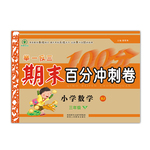题目内容
It's quite warm here; we ________ turn the heating on yet.
A.needn’t B.mustn't
C.couldn’t D.wouldn't
练习册系列答案
 举一反三期末百分冲刺卷系列答案
举一反三期末百分冲刺卷系列答案
相关题目
题目内容
It's quite warm here; we ________ turn the heating on yet.
A.needn’t B.mustn't
C.couldn’t D.wouldn't
 举一反三期末百分冲刺卷系列答案
举一反三期末百分冲刺卷系列答案